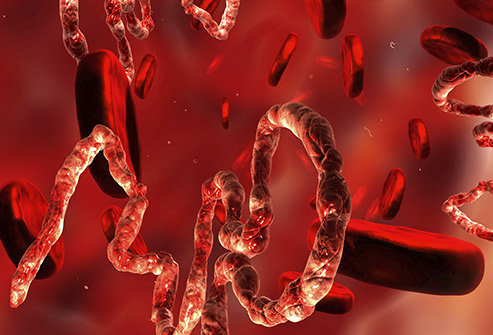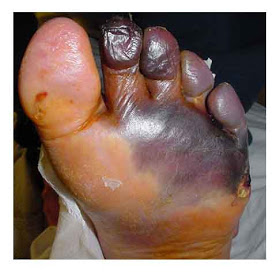In Africa the rate of sicknesses and disease in Africa is very high and in most cases,if not treated properly it's can lead to lost of life.in Africa most of the death rate is here in Africa is mainly caused by sickness and disease.
In the past 6years many citizens of Africa lost their lives and their love ones as a result of high rate of sickness and disease and lack of proper treatment.
In Africa, most of the sicknesses we suffer is mainly caused by dirty environment,inpure water and dirty wears..
Here are some sickness and diseases an their causes...
MALARIA
Malaria is a life-threatening disease. It’s typically transmitted through the bite of an infected
Anopheles mosquito. Infected mosquitoes carry the Plasmodium parasite. When this mosquito bites you, the parasite is released into your bloodstream.
Once the parasites are inside your body, they travel to the liver , where they mature. After several days, the mature parasites enter the bloodstream and begin to infect red blood cells . Within 48 to 72 hours, the parasites inside the red blood cells multiply, causing the infected cells to burst open. Learn more about mosquitoes and
treating mosquito bites.
causes of malaria
Malaria can occur if a mosquito infected with the
Plasmodium parasite bites you. There are four kinds of malaria parasites that can infect humans:
Plasmodium vivax , P. ovale , P. malariae , and P. falciparum . P. falciparum causes a more severe form of the disease and those who contract this form of malaria have a higher risk of death. An infected mother can also pass the disease to her baby at birth.
symptoms of malaria
The symptoms of malaria typically develop within 10 days to four weeks following the infection. In some cases, symptoms may not develop for several months. Some malarial parasites can enter the body but will be dormant for long periods of time.
• shaking chills that can range from moderate to • severe
• high fever
• profuse sweating
• headache
• nausea
• vomiting
• abdominal pain
• diarrhea
• anemia
• muscle pain
• convulsions
• coma
• bloody stools
DIABETIES
Diabetes is a disease that affects how your body uses food. When you eat, your body turns the food into a type of sugar called glucose. Your body then uses the glucose to fuel everything it does. There’s a catch, though. Your body needs insulin, a natural body chemical, in order to use the glucose. And if you’ve got diabetes, you’ve got problems with insulin.
TYPE 1• is the type kids usually get (which is why it has also been called juvenile diabetes). These days, though, a growing number of young people are starting to get
TYPE 2 diabetes•That’s probably because kids today are more likely to be overweight and not get enough exercise.
Symptoms of diabetes
Before being diagnosed with diabetes, people usually show some signs. These include:
• Feeling tired. If your body can’t use glucose, it doesn’t have the fuel it needs for energy.
• Urinating (peeing) a lot. The body tries to get rid of the extra glucose by urinating it out.
• Drinking a lot. The body tries to make up for the fluids lost while urinating.
• Eating a lot. If it can’t get energy from glucose, your body tries to get it by eating more food.
• Losing weight. When your body can’t use the glucose, it starts using up fat and muscle instead, which causes you to lose weight.
AIDS/HIV
AIDS (acquired immunodeficiency syndrome) is a syndrome caused by a virus called HIV (human immunodeficiency virus). The disease alters the immune system, making people much more vulnerable to infections and diseases. This susceptibility worsens as the syndrome progresses.
HIV is found throughout all the tissues of the body but is transmitted via the body fluids of an infected person (semen, vaginal fluids, blood, and breast milk).
CAUSES OF HIV
Sexual transmission - it can happen when there is contact with infected sexual fluids (rectal, genital, or oral mucous membranes). This can happen while having unprotected sex, including vaginal, oral, and anal sex, or sharing sex toys with someone infected with HIV.
Perinatal transmission - a mother can pass the infection on to her child during childbirth, pregnancy, and also through breastfeeding.
Blood transmission - the risk of transmitting HIV through blood transfusion is nowadays extremely low in developed countries, thanks to meticulous screening and precautions.
However, among injection or IV drug users, sharing and reusing syringes contaminated with HIV-infected blood is extremely hazardous.
symptoms of HIV at the early stage
Many people with HIV have no symptoms for several months to even years after becoming infected. Others may develop symptoms similar to flu, usually 2-6 weeks after catching the virus.
The symptoms of early HIV infection may include:
• fever
• chills
• joint pain
• muscle aches
• sore throat
• sweats (particularly at night)
• enlarged glands
• a red rash
• tiredness
• weakness
• unintentional weight loss
symptoms of HIV at the late stage
If left untreated, HIV weakens the ability to fight infection. The person becomes vulnerable to serious illnesses. This stage of infection is known as AIDS.
Symptoms of late-stage HIV infection may include:
• blurred vision
• diarrhea, which is usually persistent or chronic
• dry cough
• fever of above 100 °F (37 °C) lasting for weeks
• night sweats
• permanent tiredness
• shortness of breath (dyspnea)
• swollen glands lasting for weeks
• unintentional weight loss
• white spots on the tongue or mouth
During late-stage HIV infection, the risk of • developing a life-threatening illness is much greater. Life-threatening illnesses may be controlled, avoided,and/or treated with proper medications, often including HIV treatment.
HIV preventions
To prevent being infected with HIV, healthcare professionals advise precautions related to:
• UNPROTECTED SEX- having sex without a condom can put a person at risk of being infected with HIV and other sexually transmitted infections (STIs). HIV can be spread by having unprotected sex (vaginal, oral, and/or anal sex). It can also be caught from sharing sex toys with someone infected with HIV. Condoms should be used with every sexual act.
• DRUG ABUSE AND NIDDLE SHARING - intravenous drug use is an important factor in HIV transmission in developed countries. Sharing needles can expose users to HIV and other viruses, such as hepatitis C. Strategies such as needle-exchange programs are used to reduce the infections caused by drug abuse. If someone needs to use a needle, it must be a clean, unused, unshared needle.
• BODY FLUID EXPOSURE- exposure to HIV can be controlled by employing precautions to reduce the risk of exposure to contaminated blood. At all times, healthcare workers should use barriers (gloves, masks, protective eyewear, shields, and gowns). Frequent and thorough washing of the skin immediately after being contaminated with blood or other bodily fluids can reduce the chance of infection.
PREGNANCY - some ARVs can harm the unborn child. But an effective treatment plan can prevent HIV transmission from mother to baby. Precautions have to be taken to protect the baby's health. Delivery through caesarean section may be necessary. HIV-infected mothers should not breastfeed.
EDUCATION - health education is an important factor in reducing risky behavior.
EBOLA DISEASES

[ref](b:related contentslideshowEbola Virus Pictures: A Visual Guidestart)
Ebola is a rare but deadly virus that causes fever, body aches, and diarrhea, and sometimes bleeding inside and outside the body.
As the virus spreads through the body, it damages the immune system and organs. Ultimately, it causes levels of blood -clotting cells to drop. This leads to severe, uncontrollable bleeding.
The disease was known as Ebola hemorrhagic
fever but is now referred to as Ebola virus .
It kills up to 90% of people who are infected.
How Do You Get Ebola?
Ebola isn’t as contagious as more common viruses like colds , influenza , or measles . It spreads to people by contact with the skin or bodily fluids of an infected animal, like a monkey, chimp, or fruit bat. Then it moves from person to person the same way. Those who care for a sick person or bury someone who has died from the disease often get it.
Other ways to get Ebola include touching contaminated needles or surfaces.
You can’t get Ebola from air, water , or food. A person who has Ebola but has no symptoms can’t spread the disease, either.
What Are the Symptoms of Ebola?
Early on, Ebola can feel like the flu or other illnesses. Symptoms show up 2 to 21 days after infection and usually include:
• High fever
• Headache
• Joint and muscle aches
• Sore throat
• Weakness
• Stomach pain
• Lack of appetite
As the disease gets worse, it causes bleeding inside the body, as well as from the eyes , ears , and nose. Some people will vomit or cough up blood , have bloody diarrhea , and get a
rash .
How Is Ebola Diagnosed?
Sometimes it's hard to tell if a person has Ebola from the symptoms alone. Doctors may test to rule out other diseases like cholera or malaria .
Tests of blood and tissues also can diagnose Ebola.
If you have Ebola, you’ll be isolated from the public immediately to prevent the spread.
How Is Ebola Treated?
There’s no cure for Ebola, though researchers are working on it. Treatment includes an experimental serum that destroys infected cells.
Doctors manage the symptoms of Ebola with:
• Fluids and electrolytes
• Oxygen
• Blood pressure medication
• Blood transfusions
• Treatment for other infections.
In Africa, those are some of the most common and deadliest disease that has took so many lives in Africa and some part of Europe. Some of them like malaria is mainly caused by untreated water and dirty environments and even mosquitoes. Where the others HIV, ebola are first discovered in animals and later been transmitted to humans.
You can also read more of this articles on
1• source
2• source
3• source
4• source




Good information. Well analysed
Downvoting a post can decrease pending rewards and make it less visible. Common reasons:
Submit
Great enlightenment here.
Keep it up bro
Downvoting a post can decrease pending rewards and make it less visible. Common reasons:
Submit
Interesting.. im well enlightened. Thanks a lot
Downvoting a post can decrease pending rewards and make it less visible. Common reasons:
Submit